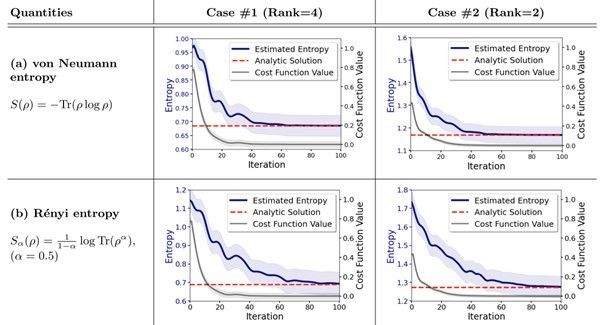Quantum computing company Norma announced on the 24th that Junseo Lee, a researcher from its Quantum AI team, has published a paper in Physical Review A, a prestigious journal of the American Physical Society. The paper, titled “Integrated Estimation of Quantum Entropy and Quantum Distance Measures via Disentangling Quantum Neural Network (DEQNN),” presents a new algorithm designed to enhance the accuracy and efficiency of estimating key quantum information metrics.
Researcher Lee co-authored the study with Myungjin Shin and Seungwoo Lee from KAIST, while Dr. Gabkyun Jeong of Seoul National University served as the corresponding author. The research introduces the Disentangling Quantum Neural Network (DEQNN), an innovative approach to overcoming computational limitations in high-dimensional quantum states.
In general, existing algorithms for estimating quantum physical quantities have limitations in that their performance degrades depending on the Hilbert space size of the quantum state. However, DEQNN overcomes these constraints, allowing for more precise estimation of quantum entropy measures such as Von Neumann entropy, Rényi entropy, and Tsallis entropy, as well as quantum distance measures like trace distance and Bures distance.
This research is considered a significant contribution to the field of quantum information science, with potential applications in quantum computing and quantum communication.
Researcher Junseo Lee stated, “DEQNN integrates dimensionality reduction techniques to estimate various physical quantities required in quantum information theory efficiently. Our goal was to provide a solid theoretical foundation for handling the complexity of large-scale quantum systems in quantum information processing and analysis.”
DEQNN preserves critical quantum state information while reducing Hilbert space dimensions, enabling more efficient quantum entropy and distance estimation. Unlike traditional methods that apply separate dimensionality reduction for each physical quantity, DEQNN employs a single network structure to perform simultaneous estimations, significantly improving research efficiency and practical applications. The study also explores the physical conditions under which DEQNN can be implemented, providing insights into its real-world applicability and future improvements.
The findings suggest that DEQNN could enhance existing quantum algorithms by implementing low-complexity quantum neural networks, making quantum computations more efficient. Potential applications include chemistry and physics simulations, financial modeling, and optimization problems, where improved quantum machine learning techniques could be leveraged.
Hyunchul Jung, CEO of Norma, emphasized the significance of the research: “This publication is a testament to our continued investment in R&D and talent development in quantum technologies. We remain committed to advancing quantum research and driving innovation in the field.”


